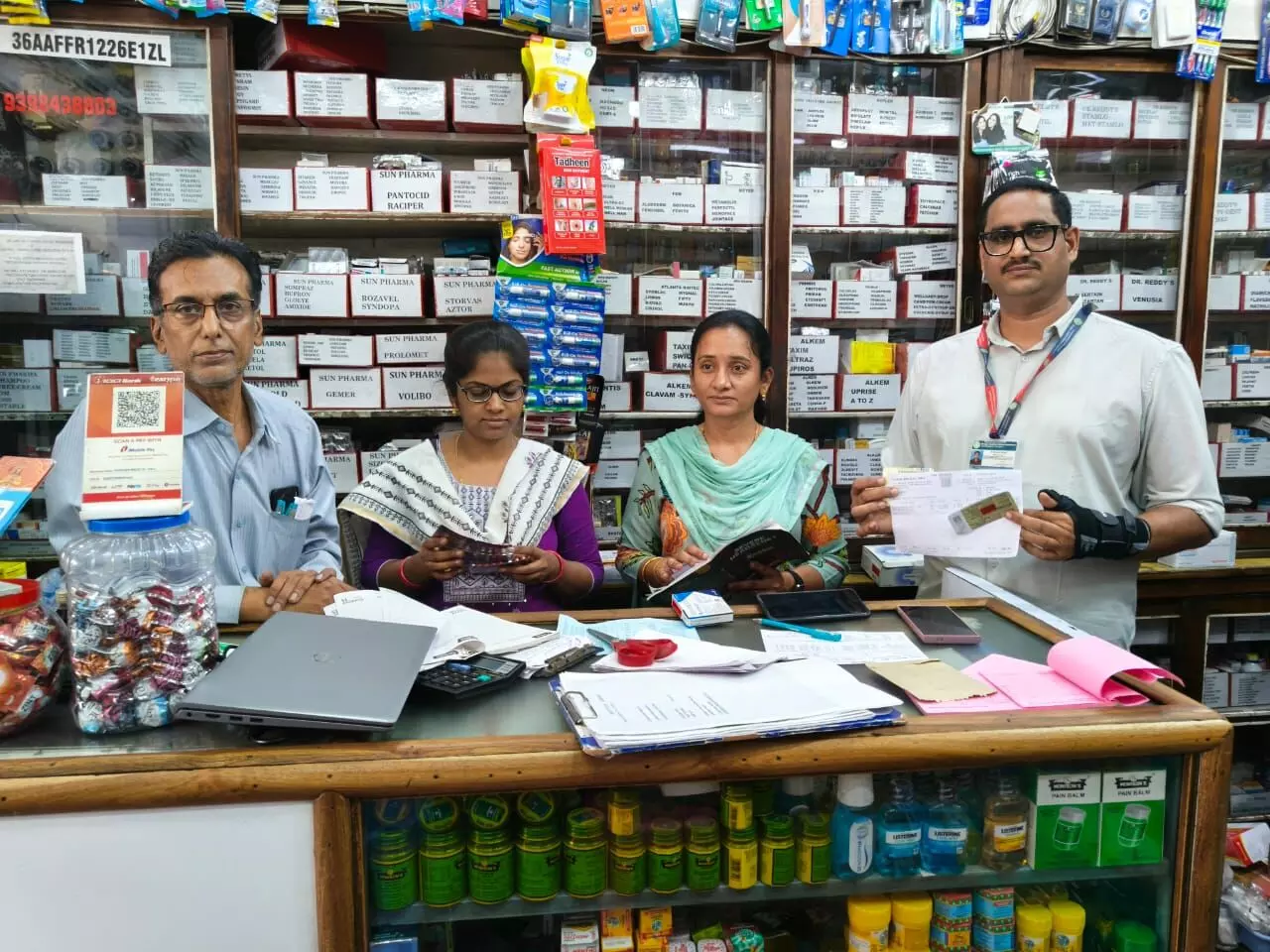Antimicrobial Resistance: 193 pharmacies in Telangana found violating antibiotic sales norms
Antimicrobial Resistance occurs when bacteria, viruses, fungi, or parasites evolve and stop responding to medications designed to kill them
By Newsmeter Network
Antimicrobial Resistance: 193 pharmacies in Telangana found violating antibiotic sales norms
Hyderabad: In a step toward tackling Antimicrobial Resistance (AMR), the Drugs Control Administration (DCA) of Telangana conducted surprise raids, and 193 medical shops were found violating rules on controlling the indiscriminate sale of antibiotics, a key contributor to the emergence of drug-resistant infections.
The DCA conducted surprise inspections across the State on June 12. The special drive led to the detection of serious violations, prompting the issuance of show cause notices.
Violations included the sale of antibiotics without a valid doctor’s prescription, absence of registered pharmacists, non-issuance of sale bills, and failure to maintain mandatory registers under Schedule H1 of the Drugs Rules.
The raids were part of a coordinated effort to enforce the Drugs and Cosmetics Act, 1940. Action will be taken in accordance with the law, the DCA said.
Understanding the threat: What is AMR?
Antimicrobial Resistance occurs when bacteria, viruses, fungi, or parasites evolve and stop responding to medications designed to kill them. The World Health Organisation (WHO) has identified AMR as ‘one of the top 10 global public health threats facing humanity.’
According to WHO estimates, bacterial AMR was directly responsible for 12.7 lakh deaths globally in 2019, with India among the countries most affected.
“Antibiotics save lives when used correctly,” the DCA stated. “But misuse causes bacteria to become resistant, making life-saving drugs ineffective and infections difficult or impossible to treat.”
Public advisory
The Drugs Control Administration issued a detailed public advisory, urging citizens to take responsible actions to curb AMR. Key points include:
- Use antibiotics only when prescribed by a qualified doctor (Registered Medical Practitioner).
- Do not self-medicate or rely on advice from unqualified individuals or pharmacists.
- Do not take antibiotics for viral infections, such as the common cold or flu.
- Complete the full course of antibiotics as prescribed, even if symptoms improve early.
- Avoid sharing or reusing leftover antibiotics.
- Be cautious about over-the-counter purchases—antibiotics are prescription drugs under Schedule H and H1, and unauthorised sale is punishable.
“Before you use the antibiotic or buy it from the medical shop, stop and think: If I take this without a prescription, will it stop working for me when I need it?” the advisory stated.
AMR in livestock and the environment is also under scrutiny
The DCA also raised concerns about the overuse of antibiotics in livestock, poultry and fish farming, especially when used for growth promotion. It warned that this practice contributes significantly to AMR in humans.
In addition, pharmaceutical pollution and improper disposal of antibiotics were identified as environmental drivers of resistance.
Call to action
The advisory urges the public to stay informed and take preventive steps. Citizens are encouraged to discuss the issue with family and friends to promote awareness and responsible antibiotic use.